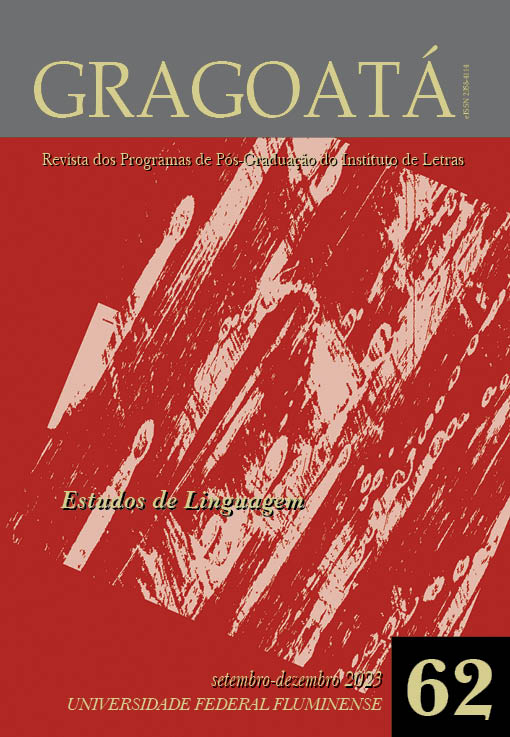History and Analysis of an Unfinished Language Policy (2019-2022): The Case of Kitoro
DOI:
https://doi.org/10.22409/gragoata.v28i62.59558.frKeywords:
Language policy, Linguistic ideologies, PlurilingualismAbstract
In this article, the author proposes a reflection on the language choices of certain countries and on the attempts of external intervention in these choices. It is a text of pedagogical character that can be used in language policy courses to initiate a discussion on the arbitrariness of power, the role of international experts, technical cooperation, mainly involving post-colonial, plurilingual contexts, as well as more general issues of practical, ideological, anthropological, political and ethical order.
Downloads
References
CORTÁZAR, Julio. Historias de Cronopios y de Famas. Buenos Aires: Minotauro, 1962.
FRANCIS, Jouannet. Prosodologie et phonologie non linéaire. Paris: SELAF/ACCT, 1985.
GUTHRIE, Malcolm. The Classification of the Bantu Languages. London: Oxford University Press; The International African Institute, 1948.
GUTHRIE, Malcolm. Comparative Bantu: an introduction to the comparative linguistics and prehistory of the Bantu languages. London: Gregg International, 1967-1971. 4v.
HAGÈGE, Claude. La Structure des langues. Paris: PUF, 1982
JANTON, Pierre. L’ espéranto. Paris: PUF, 1973.
WITTMANN, Henri. Classification linguistique des langues signées non vocalement. Revue Québécoise de Linguistique Théorique et Appliquée, v. 10, n. 1, p. 215-288, 1991.
WITTGENSTEIN, Ludwig. Philosophische Untersuchugen. In: WITTGENSTEIN, Ludwig. Tractatus logico-philosophicus. Paris: Gallimard, 1986.
YIHONG, Gao. Sociocultural contexts and English in China: Retaining and reforming the cultural habitus. In: LO BIANCO, Joseph; ORTON, Jane; YIHONG, Gao. (eds.). China and English: Globalisation and the dilemmas of identity. Bristol: Multilingual Matters, 2009. p. 56-78.
Downloads
Published
Issue
Section
License
Copyright (c) 2023 Gragoatá

This work is licensed under a Creative Commons Attribution 4.0 International License.
Authors who publish in Gragoatá agree to the following terms:
The authors retain the rights and give the journal the right to the first publication, simultaneously subject to a Creative Commons license CC-BY-NC 4.0, which allows sharing by third parties with due mention to the author and the first publication by Gragoatá.
Authors may enter into additional and separate contractual arrangements for the non-exclusive distribution of the published version of the work (for example, posting it in an institutional repository or publishing it in a book), with recognition of its initial publication in Gragoatá.

Gragoatá is licensed under a Creative Commons - Attribution-NonCommercial 4.0 International.











